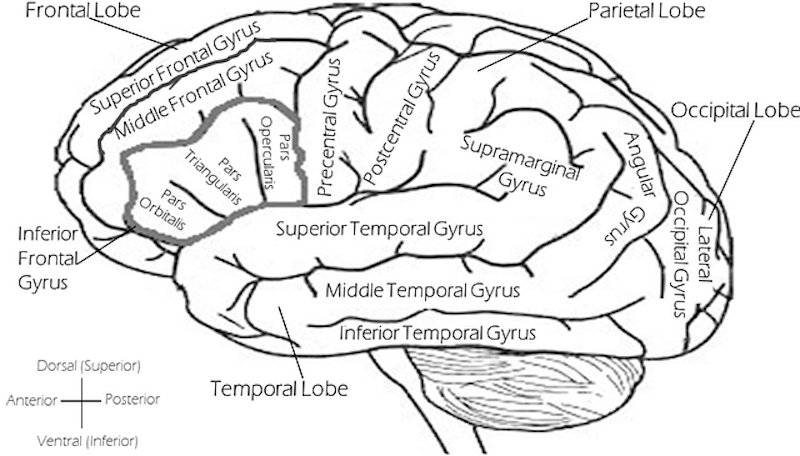This first fact about Dementia from the World Health Organization may surprise you. “Dementia is not a normal part of ageing. Although dementia mainly affects older people, it is not a normal part of ageing. Dementia is a syndrome, usually of a chronic or progressive nature, caused by a variety of brain illnesses that affect memory, thinking, behaviour and ability to perform everyday activities . . .”
What is Dementia?
Dementia is the name given to a group of neurodegenerative diseases responsible for causing symptoms associated with a decline in cognitive function; this includes reasoning, thinking, and remembering. Dementia can range from mild to severe, and some patients may even experience changes in mood, personality, language skills, problem solving, and self-management. Dementia is more common in individuals aged 65 years and older and affects 5.4 million people in the United States.
How does it develop?
There are various reasons why dementia develops. The most common causes of dementia are explained below. It is important to note that it is possible for an individual to have two or more causes of dementia: This is referred to as mixed dementia.
Low Levels of Klotho Protein
Surprisingly, various studies have linked lower than normal levels of naturally occurring klotho protein to conditions that lead to dementia, like Alzheimer’s disease. Results uncovered from various studies suggest that klotho protein may prove useful as a potential treatment for the prevention and/or treatment of dementia. For example, one study showed that augmenting klotho protein levels in mice enhanced cognitive function in both younger and aging mice.1 A more recent research initiative discovered a way to prevent or delay the onset of Alzheimer’s disease using klotho protein. In this study, scientists found that by administering klotho protein to neurons associated with memory, they can prevent their death. The death of these neurons is the major contributor to the onset of Alzheimer’s disease and associated dementia.2
Alzheimer’s Disease
Alzheimer’s disease is the most common cause of dementia and accounts for roughly 60 to 80 percent of diagnoses.3 Alzheimer’s, which progresses slowly over time, develops when a buildup of certain proteins in the brain cause nerve damage to the neurons associated with memory and learning. The symptoms of Alzheimer’s disease typically include:
[line_list]
- Memory loss
- Poor judgment
- Repeating questions
- Taking longer than usual to complete normal, daily tasks
- Losing or misplacing things
- Change in mood
[/line_list]
Cerebrovascular Disease
Cerebrovascular disease describes conditions that affect the flow of blood to the brain. For example, a stroke suddenly blocks a major blood vessel in the brain. Dementia that develops as the result of cerebrovascular disease is called vascular dementia. Symptoms of vascular dementia typically include:
[line_list]
- Disorientation
- Confusion
- Vision loss
- Trouble speaking
[/line_list]
How is Dementia Treated?
Currently, there is no treatment for dementia. Instead, healthcare providers focus on symptom management. Current treatments used to manage symptoms of dementia include:
Medication: Medication can help boost memory function, treat depression, or help patients sleep.
Occupational therapy and task modification: These therapies can be used to prevent accidents and to help make completing daily tasks easier.
Exercise regularly: In fact, exercise can improve the mood and mental attention of individuals with Alzheimer’s disease.4
Although there is currently no treatment for dementia, scientists are working on developing new therapies, like klotho therapy, to prevent, slow the onset of, and even treat dementia.
Does Someone You Love Suffer from Dementia?
Thus, If you recognize signs of dementia in yourself, make an appointment to speak with your primary care physician. Also, If you notice signs of dementia in a loved one, recommend that he or she visit their primary care physician. If your loved one refuses to see a doctor, call your primary physician and ask for advice on how to proceed. In order to diagnose dementia, doctors need to complete a thorough medical assessment. The early diagnosis of dementia is the key to your loved one receiving the support needed.
- Leon J, Moreno A, Garay B, Chalkley R, Burlingame A, Wang D, Dubal D. Peripheral Elevation of a Klotho Fragment Enhances Brain Function and Resilience in Young, Aging, and α-Synuclein Transgenic Mice. Cell Reports. 2017;20:1360–1371. https://doi.org/10.1016/j.celrep.2017.07.024.
- Zeldich E, Chen CD, Colvin TA, Bove-Fenderson EA, Liang J, Tucker-Zhou TB, Harris DA, Abraham CR. The Neuroprotective Effect of Klotho is Mediated via Regulation of Members of the Redox System. Journal of Biological Chemistry. 2014 Aug;289(35):24700-15. https://www.ncbi.nlm.nih.gov/pubmed/25037225.
- Types of Dementia “Alzheimer’s Disease.” Alzheimer’s Association. https://www.alz.org/dementia/types-of-dementia.asp#alzheimers. Publication date unavailable. Accessed June 21, 2018.
- Exercise: A promising treatment for dementia? Harvard Medical School, Harvard Health Publishing, Harvard Health letter. https://www.health.harvard.edu/mind-and-mood/exercise-a-promising-treatment-for-dementia. Publication date September 2015. Accessed June 21, 2018.
SOURCES:
http://www.who.int/features/factfiles/dementia/en/
https://www.nia.nih.gov/health/what-dementia
https://www.nia.nih.gov/health/what-are-signs-alzheimers-disease
https://www.alz.org/dementia/types-of-dementia.asp
https://www.alz.org/what-is-dementia.asp
https://www.healthline.com/health/alzheimers-disease/difference-dementia-alzheimers
https://www.healthline.com/health/dementia/stages
https://www.alz.org/what-is-dementia.asp
https://www.alz.org/dementia/vascular-dementia-symptoms.asp
https://news.usc.edu/138194/5-things-to-know-about-helping-loved-ones-with-alzheimers/
https://www.alz.org/alzheimers_disease_treatments.asp
https://www.alz.org/alzheimers_disease_diagnosis.asp
https://www.sciencedaily.com/releases/2014/07/140724172108.htm
https://www.mayoclinic.org/diseases-conditions/dementia/symptoms-causes/syc-20352013
https://myageingparent.com/health/mental-health/what-to-do-if-you-think-your-parent-has-dementia/
https://www.mayoclinic.org/diseases-conditions/dementia/diagnosis-treatment/drc-20352019
Reader Question?
Do you know anyone who was diagnosised with dementia If so, how did you show them love and support?


